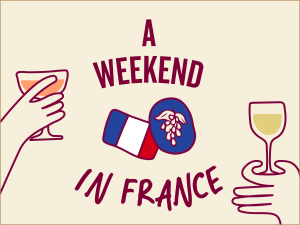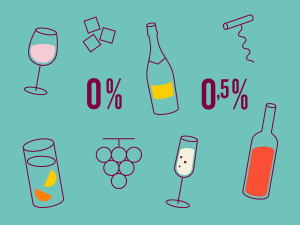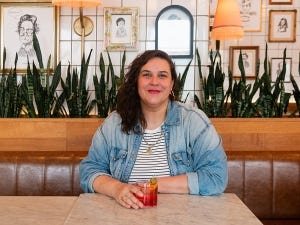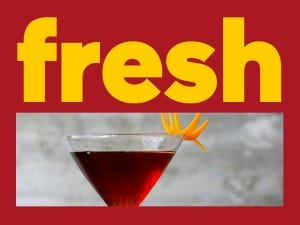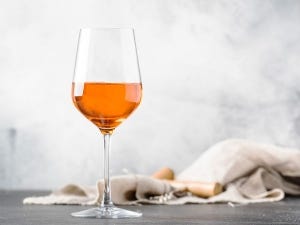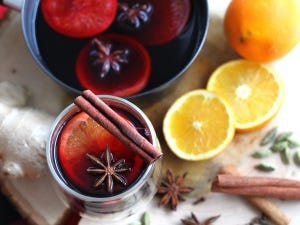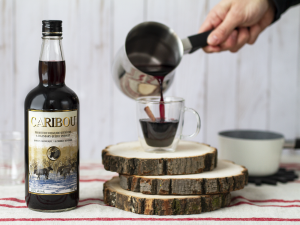Red wine, the nectar that brings people together
For Lionel, aka KIZABA, red wine represents what he hopes to bring to his audience—warmth and comfort. “They say it’s good for your heart! It warms you up and is approachable, just like the pop influences in my music and the subject matter in my songs, which touch on common themes like love and everyday life,” he said with a smile.
Cultural exchange is at the core of his art. With his Afrofuturist fusion of pop, electronica and Congolese soukous, KIZABA wants to get the whole world dancing by transcending musical boundaries. The idea of bringing people together came up often when he talked about his work: “I don’t want just people from Congo to listen to my music. I want everyone to be able to relate to it.” That’s why Quebec and international festivals are so important, as they offer major exposure to music artists by sharing their creative talent with a wide audience. In particular, the Festival International Nuits d’Afrique—a cultural event that the SAQ is proud to support—was a huge launch pad for KIZABA. “This festival does so much to promote Black artists and their work. It’s a great way to get yourself out there,” he noted.
With lyrics in French, English, Kikongo, and Lingala, has KIZABA turned his music into a universal language? At the very least, it allows him to share with others the joy he draws from it himself.
Ice cider, celebrating connection
KIZABA is a fan of ice cider, which he associates with festivities, sugar shacks, and his connection with the people and culture of Quebec. He believes that meeting new people is essential, because the folks whose path he’s crossed have helped give his career a boost. For instance, he pointed to singer and actor Mario Saint-Amand, who invited him to join his tour of the province.
“When you arrive in a new country, you have to take an interest in its culture. Meeting people is really what helped me to learn about Quebec and its artists and industry. I owe my success to the people who opened doors for me.”
Ice cider is also what he serves to celebrate milestones in his career, like when his album Kizavibe was nominated in several categories at the 2024 Juno Awards.
Irish cream, sweet tradition
Another of KIZABA’s favourites is Irish cream, which he treats himself to after a busy week of creating, producing or performing. This velvety beverage brings up memories of Congo because of its similarity to marula cream, a popular liqueur in the country.
KIZABA’s roots—from Congo’s musical traditions to his family history—play a significant role in his work. His grandmother, herself a singer, gave him his passion for singing and percussion. As a child, he made his own drum kit using pots and kitchen utensils! Later, his uncle, a jazz teacher, introduced him to the genre, taught him the basics of the industry and actually advised that his nephew not pursue traditional music because it would be difficult to export. Despite that, after spending a few years focusing on jazz, KIZABA settled on a hybrid of Congolese, pop and electronic music, his goal being to showcase his cultural background on the world stage by making it more approachable. He takes great pride in getting people from all walks of life dancing to beats he grew up on.
His next album, Future Village, comes out at the end of April and includes vocal harmonies inspired by his grandmother’s voice. He describes this record as “a return to my roots, but with a cosmic and futurist touch.” The title reflects the way he has blended his heritage and the avant-garde—the space between local and universal. It promises to be a stellar journey!


KIZABA's favourites related to Black culture in Québec:
- Montreal’s iconic Club Balattou is a launch pad for artists of African descent. It offers spectacular musical and event programming featuring local and international performers.
- African-Quebec restaurant Maquis Yasolo (French only) in Montreal’s Saint-Henri neighbourhood is a celebration of African flavours—and one of KIZABA’s top spots.
- Congolese artist Naxx Bitota creates music that combines genres like classical, gospel, folk, and traditional. Her tunes are definitely worth checking out!
- Congolese visual artist KANDO explores mixed identities through painting, sculpture and photography.
 Access to SAQ Inspire personalized services and store inventories are unavailable at the moment.
Access to SAQ Inspire personalized services and store inventories are unavailable at the moment. Free in-store delivery with purchases of $75+ in an estimated 3 to 5 business days.
Free in-store delivery with purchases of $75+ in an estimated 3 to 5 business days. 

